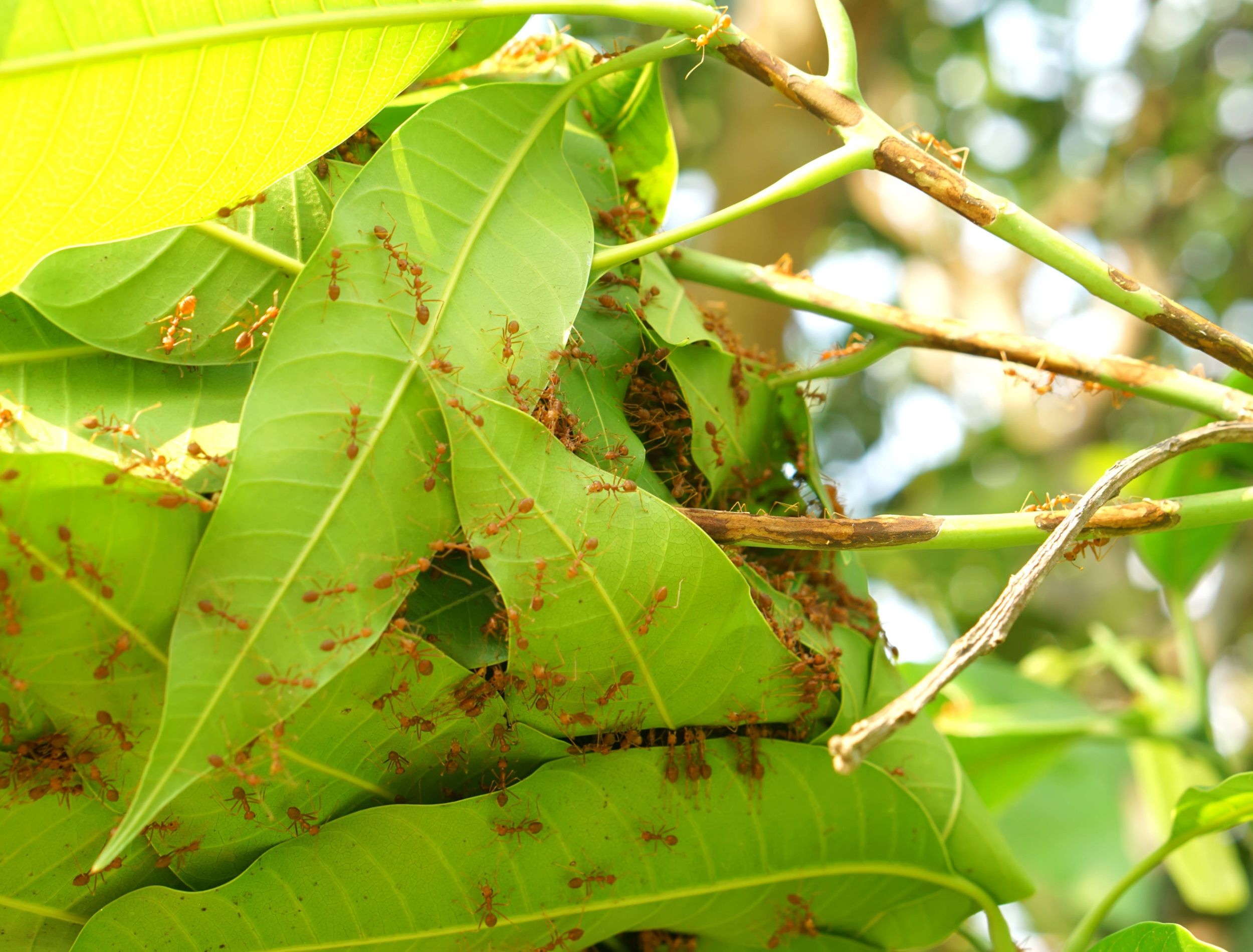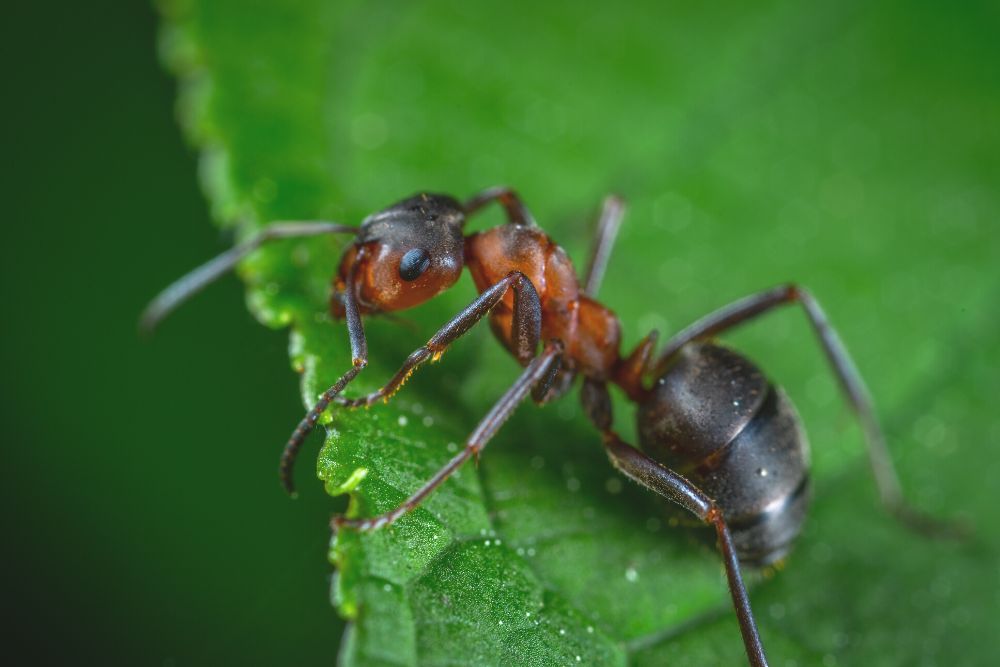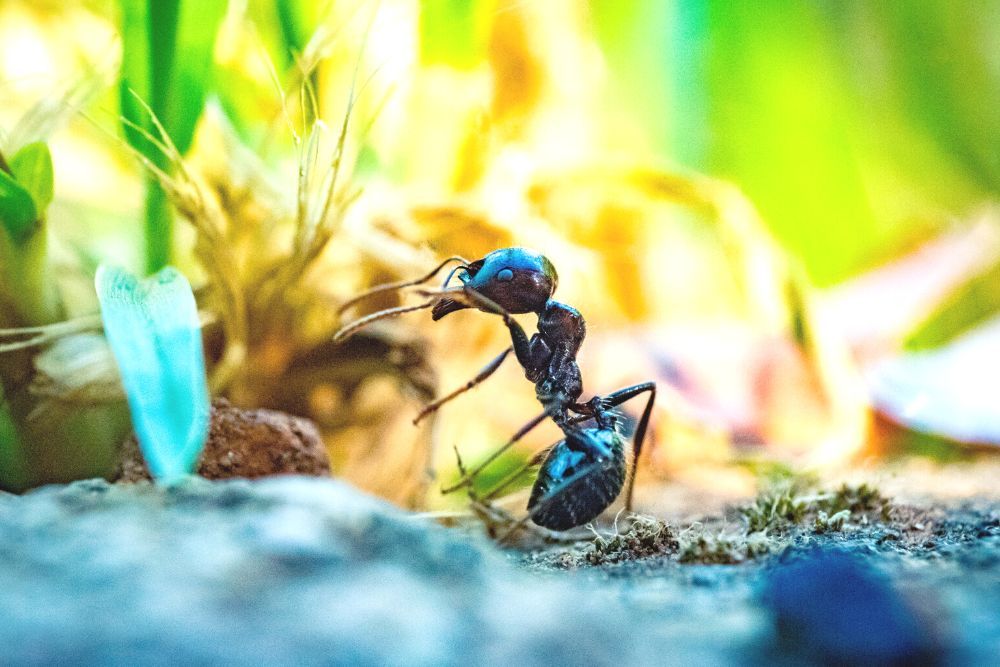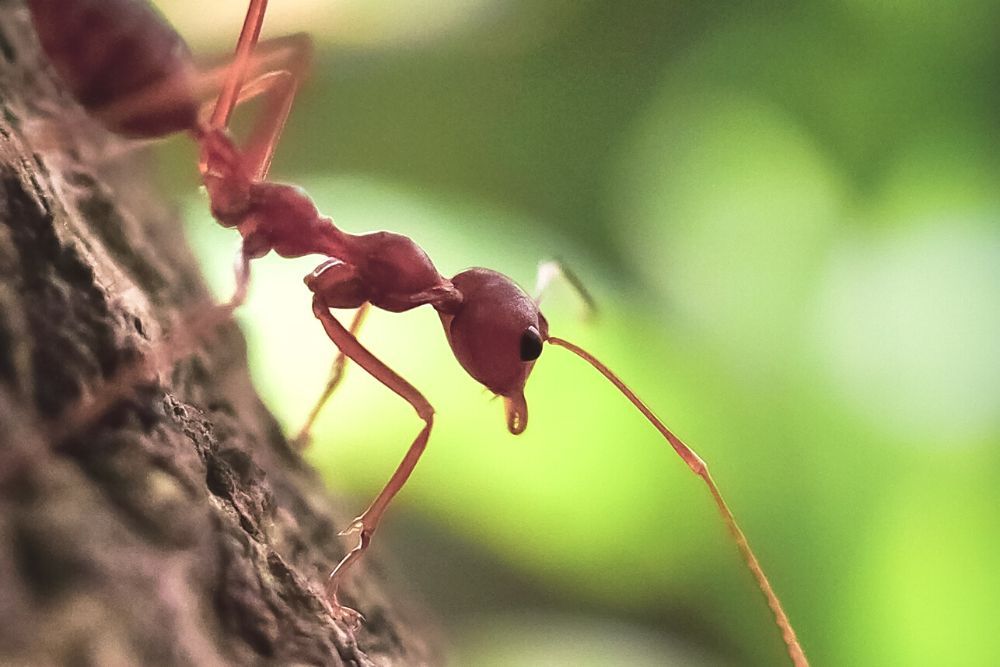Ants are a common sight in most gardens and yards. They run to and fro carrying small bits of organic matter around. They are a crucial part of the outdoor ecosystem but since they're so small people forget about them until they become a problem like other garden pests.
But the question is, should you get rid of ants in your garden? Learn everything you need to know about these critters in your yard, and if they're a problem you need to tackle!
Should You Get Rid of Ants in Your Garden?
Image credits: Egor Kamelev via Pexels
Figuring out if you should get rid of ants in your garden can be tricky. The answer, it depends!
Ants can be highly beneficial to a garden, so removing them isn't always the best option. However, some will leave you running for the hills. Fire ants have the potential to sting you when working in the yard so removing them is likely the best route.
But before you make your decision or chase out the ants in your garden, here are a few considerations to keep in mind.
Benefits of Ants in The Garden
Image credits: Guillaume de Germain via Unsplash
Ants have been on Earth a long time, 80 million years to be precise! They are one of the most highly resilient and persistent garden insects. They don't just look out for themselves either; Having beneficial insects like ants can actually help out your garden. These are a few benefits that ants can bring to your outdoor oasis.
They Eat Other Pests
One of the top benefits of having ants in your garden is that in the insect world, they are fairly high up on the food chain. They prey on the larvae of insects and snack on the milk of aphids, helping to control pest populations. When insects die in your garden, they also eat the carcasses left behind. So they actually help to clean your garden from dead insects too!
Ants Fertilize The Soil
Ants are great at fertilizing the soil in your garden. When they come across organic matter from plants or animals they carry this back to their nests. By doing this, they act as recycling centers. They tidy up unwanted organic materials, eat and process them, and then leave behind the nutrients to fertilize the soil.
They Boost Soil Aeration
While ants are moving around in the garden soil, they create little tunnels. This helps to loosen up and aerate the soil. As a result, water and air can both flow more freely throughout the soil, providing a great foundation for plants to grow. In fact, ants loosen the soil just as much as earthworms do!
Getting Rid of Fire Ants
Image credits: Pranav Lal via Pexels
While ants do offer great benefits to gardens, sometimes they can be a big problem too. Fire ants are one of the most common culprits of ant damage in vegetable gardens.
If you grow potatoes or okra in your garden these are both susceptible to fire ant damage. Then, if there is a drought they may also start to eat the stems of young plants. If they are stinging you or damaging your crops, it's best to get rid of them.
Send Fire Ants Packing With Bait Traps
One of the most effective ways to get rid of fire ants in your garden is to use a specific bait trap for ants. A bait trap has a toxic substance in it, like boric acid or Borax. It also has a material that attracts the ants, like peanut butter or soybean oil.
When the ants go to pick up the enticing substance, they take the toxic material back to their colony. Eating the bait kills the ants in the colony and the queens. By using this method you can get rid of up to 80 percent of a fire ant colony.
Keep in mind that you might have to try this method out a few times before it's successful. For best results, place the trap when ants are active and temperatures are above 65 degrees Fahrenheit. Put it near an entrance to their nests when the weather will be sunny for a few days. Then wait a few weeks for the bait to spread throughout the colony. You may need to re-apply the traps in spring, summer, and fall, depending on their success.
Note: If you buy a bait trap for a vegetable garden always check the label first to see if it is safe to use around vegetables. It is best to avoid traps that include acephate as an active ingredient. While this is a common ingredient in ant traps for lawns, it is not safe to use in a vegetable garden.
Ants, Should They Stay or Go?
The answer is, it depends! If you don't have fire ants in your garden that are stinging you and eating your vegetables, it might be best to let them stay. They can even be helpful by reducing other pests, fertilizing the soil, and improving aeration. However, if fire ants are causing problems a bait trap is an effective way to deal with the problem and can help you get rid of these pesky pests.
Do you keep or get rid of the ants in your garden? Share your experiences in the comments below to help other gardeners successfully manage these insects.




